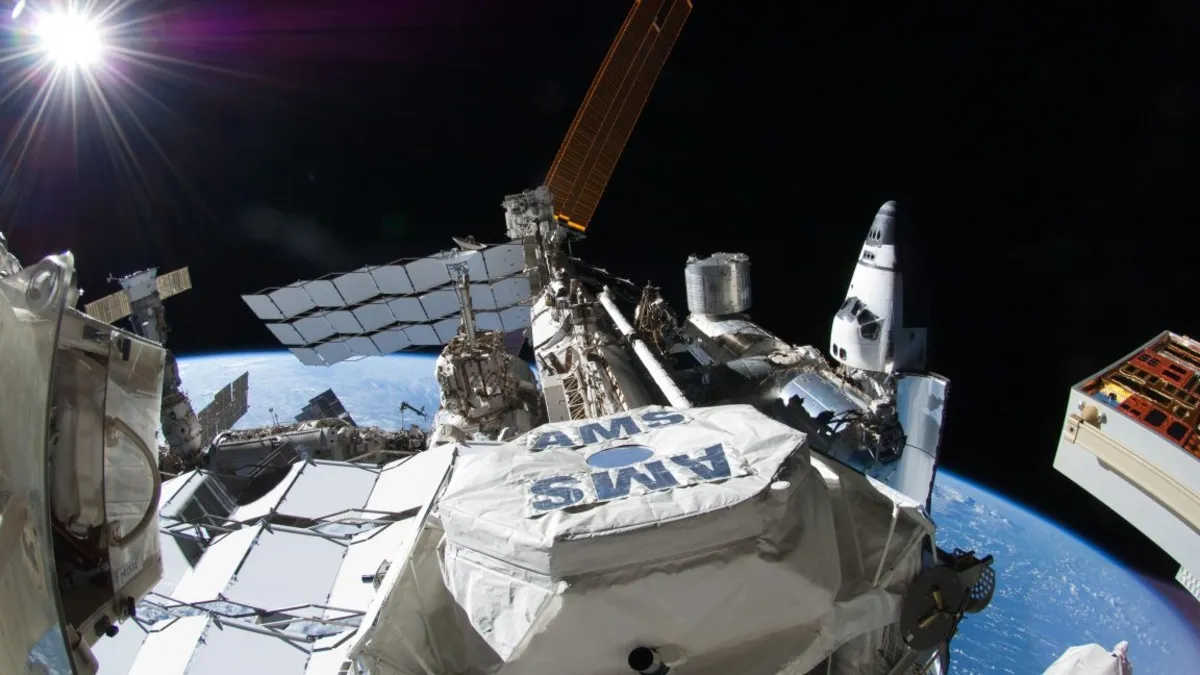
In a significant turn of events, the Trump administration's recently unveiled skinny budget proposal for NASA has sparked concerns within the space community. Among the most shocking revelations is the administration's call for the US space agency to scale back its operations on the International Space Station (ISS). The proposal, aimed at fiscal year 2026, suggests reducing the crew size and onboard research activities, paving the way for the eventual decommissioning of the ISS by 2030 in favor of commercial space stations.
The budget proposal outlines a plan to reduce crew and cargo flights to the ISS significantly, estimating a potential savings of $508 million from an annual budget of approximately $3 billion dedicated to ISS operations. The focus of the reduced research capacity will shift towards initiatives vital for the Moon and Mars exploration programs.
While NASA has remained tight-lipped about how it would implement these budget constraints, sources indicate that officials may propose several significant changes. These include:
Reducing the crew size on Crew Dragon missions from four to three, starting with Crew-12 in February 2026. Extending the duration of ISS missions from six to eight months. Canceling upgrades to the Alpha Magnetic Spectrometer, a vital science instrument attached to the station.It is important to note that the budget proposal is not final. Rather, it represents the initial phase of negotiations, and NASA has not yet solidified any of these proposed changes. If the White House's budget cuts for ISS operations are adopted, some of these adjustments may become necessary. Interestingly, extending the standard crewed mission duration from six to eight months could allow NASA to reduce the number of crewed missions to the ISS from four to three every two years, potentially leading to significant savings in transportation costs.
This approach aligns with the strategy employed by Roscosmos, which has also extended the duration of its Soyuz missions to eight months as a cost-saving measure. However, the downside to such changes is that fewer astronauts would gain valuable experience in orbit, which could impact the long-term goals of NASA's crewed programs.
One of the most striking aspects of the proposed adjustments is the reduction of the crew size from four to three. Typically, Crew Dragon missions include two NASA astronauts, one cosmonaut from Roscosmos, and an astronaut from an international partner. This means that while the apparent reduction is only 25 percent, the actual reduction of NASA astronauts on Crew Dragon missions would be closer to 50 percent. Consequently, this could lead to an estimated one-third decline in scientific research conducted aboard the ISS, as there are usually three NASA astronauts on the station at any given time.
The reasoning behind this reduction remains unclear, as it seems counterintuitive to drastically cut operational capacity after investing over $100 billion in developing and maintaining the ISS. While NASA may incur marginal savings on cargo missions due to fewer astronauts, the overall impact on scientific productivity raises concerns.
As of now, NASA has not publicly disclosed the astronauts selected for the Crew-12 mission. However, sources indicate that veteran astronaut Jessica Meir and newcomer Jack Hathaway, a former US Navy fighter pilot, have been assigned to this mission. Should the proposed changes proceed, it is likely that one of these two astronauts would be removed from the Crew-12 lineup.
Despite the proposed budget cuts, it is essential to recognize that these changes are not set in stone. The president's budget proposal marks the beginning of a lengthy process where the White House Office of Management and Budget will collaborate with Congress to determine funding levels and programmatic priorities for fiscal year 2026. Historically, the final budget may not be established until well into the fiscal year.
Congress has generally shown support for the ISS, which is expected to operate until 2030 before being decommissioned. Furthermore, the Trump administration's nominee to lead NASA, Jared Isaacman, has expressed a commitment to maximizing scientific output from the ISS during his recent confirmation hearing. Isaacman emphasized the importance of prioritizing high-potential scientific research that could facilitate the development of a commercial economy in low-Earth orbit, contrasting with the budget's focus on lunar and Martian exploration.
As the budget deliberations unfold, it remains to be seen how NASA will navigate these proposed cuts and what their ultimate impact on the agency's future programs will be.